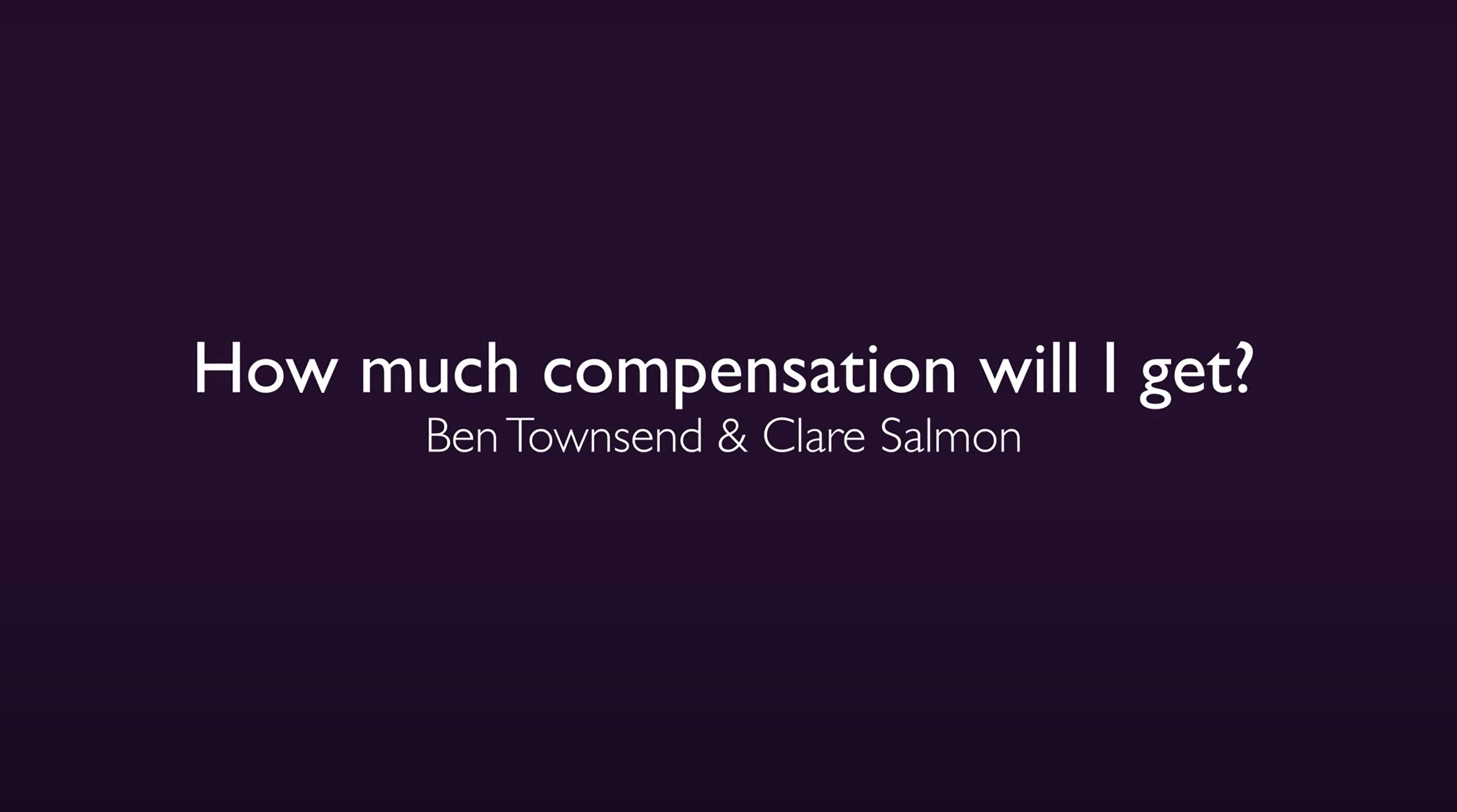In personal injury cases, care claims can, depending on the applicable law, be the single biggest head of loss in an individual’s damages claim. It is therefore unsurprising that it is often one of the most, if not the most, contentious areas. In this first article in a two-part series, International Injury partner Chris Deacon, with input from care expert and case manager Kay Taylor, sets out ten top tips for working with care experts to achieve the best outcome for seriously injured clients.
Issues of contention usually focus on:
- The model of care package
- Future needs
- Deterioration with ageing or as an individual’s medical condition progresses.
Consequently, this aspect of claims for damages arising from life-changing injuries requires a huge degree of coordination between factual documentary evidence, factual witness evidence and experts working alongside the care expert, notably the medical experts.
Individuals who do not secure the right outcome in their claim for care are most likely to feel the impact many years down the line and may have to fall back on state provision or benefits, which are increasingly challenging to secure.
- Is care expert evidence required?
Not all cases will call for care expert evidence, but this will usually be a feature in claims for damages following life-changing, catastrophic injuries.
In claims where a foreign law might apply, one of the first questions to ask is whether the cost of care will be recoverable in damages.
A preliminary view from a foreign law expert will need to be obtained to decide if care costs (gratuitous or professional, ie paid) are recoverable. If they are, on what basis are they recoverable, and will there be any limitations on recoverability, for example, caps on damages? In particular, it will be important to determine whether there are established guidelines on care rates, notably for gratuitous care, given that the actual rates in the claimant’s country of residence may be deemed less relevant under the foreign law when assessing damages. This was seen in action in the recent case of DHV v Motor Insurers’ Bureau [2025] EWHC 2002 (KB), where the High Court allowed a strict application of Spanish law, resulting in the claimant’s future care claim being irrecoverable.
Obtaining witness statements from the claimant and those involved in supporting the claimant may also help inform what is being done on the ground in the absence of a formal, professional care package. Such witness evidence will not only be key in understanding the gratuitous care provided by family, friends, etc., but it may also help shine a light on unmet care needs and, therefore, whether a care expert can add value to the case.
What do the medical experts say about care needs? In proceedings in England and Wales (E&W), the care expert’s recommendations will be led by what the medical evidence reveals about the claimant’s condition and prognosis, including likely future deterioration. This will help establish if care is an issue in the case that requires care expert opinion.
- Will the court allow care expert evidence?
In some jurisdictions, the scope of expert evidence permitted can be very limited. This may be an important factor when advising your client on where to bring proceedings if there is a choice of forum, as the nature and scope of expert evidence is generally a matter for the law of the forum, even if a different (foreign) law applies to the assessment of damages.
Wall v Mutuelles de Poitiers [2014] EWCA Civ 138 is the seminal case interpreting Articles 1.3 and 15 of Rome II. In this case, the Court of Appeal in E&W held that the law of the forum governs the way in which evidence of fact or opinion is to be given, not the applicable law pursuant to Art 4 of Rome II.
Even in E&W, where the rules on admissible expert evidence are more wide-ranging, the court will only give permission for the parties to obtain and rely upon expert evidence that is reasonably required to resolve the proceedings: see, in particular, E&W Civil Procedure Rules 35.1 and 35.4.
In most catastrophic injury cases, the need for care expert evidence is rarely contested, but it might be, particularly if a foreign law applies and heavily restricts what can be recovered for care. The defendant may oppose a claimant’s request for permission to obtain and rely on such evidence.
- Choose your expert carefully
It is vital to make diligent initial enquiries, including asking about professional indemnity insurance and any judicial criticism the expert may have received in the past.
- Check your expert’s CV carefully.
- Get a sense of their experience as an expert and how many reports they typically prepare in a year (a high number is not necessarily a good thing).
- What is their split of work between claimants, defendants and joint instructions?
- Does the care expert also have case management experience?
It is also vital to check if they are available to report within the required timescale, particularly if there is a court order directing the deadline by which a report must be served. You should work backwards from that deadline, thinking about all the steps that will need to be taken to prepare the report for service.
You should obtain a clear estimate of costs and keep this under review, including asking your expert to confirm their costs again once they have seen the volume of case documents.
Most importantly, ensure the expert has the right expertise for the issues in the case. The following examples illustrate why this is crucial:
- In CCC v Sheffield Teaching Hospitals NHS Foundation Trust [2023] EWHC 1770, the judge said of the defendant’s expert: “Mr Chakraborty’s evidence in relation to care was flimsy and unimpressive, but more importantly, I consider that Mr Chakraborty is not an expert in constructing, designing and managing care packages for children with cerebral palsy.” He continued: “I do not consider that he was acting within his [Civil Procedure Rules] Part 35 responsibilities professionally or properly.”
- In Dobson v Chief Constable of Leicestershire Police [2025] EWHC 272 (KB), the judge preferred the expert with direct experience of the issue in question in a case of alleged negligence of the police when releasing the claimant from custody without an effective mental health assessment.
Additionally, as an expert, ask yourself:
- Are you qualified and experienced in working with people with this type of injury and in that jurisdiction?
- Are you the right person for the job?
- Get the timing of the expert instruction right
The timing of the instruction requires thinking and planning. Are you obtaining the evidence with a view to settlement negotiations? Or is it required to meet a court deadline?
You will want to have sufficient evidence in play, such as:
- Risk assessments regarding requirements for care, notably when claiming for double-up care.
- Care records.
- Case management records.
- Witness evidence.
- Medical expert evidence.
You will also want to consider whether specialist input is required to inform the care expert’s recommendations, for example, a bladder and bowel care regime, training needs for carers, supervision and oversight. This could be highly relevant to the care expert’s views on future needs in certain cases.
As an expert, there must be some evidence for the care expert to base their opinions on. Early reports can be helpful if there is reliable medical evidence. It is important to leave plenty of time for the preparation of the care reports, as they take time to complete well.
Ensure the expert receives everything you think might be relevant. If something changes, highlight this to them as it may affect their opinion. Do not simply send everything in the case management, multi-disciplinary team and/or hospital files and expect the expert to pull out the relevant items. This is time-consuming and will increase the cost of the expert report. When the file is updated, clearly highlight what is new; do not expect the expert to do this, as it is not a good use of their time and clinical skills.
- The letter of instruction is key
As the instructing solicitor, you must diligently prepare the letter of instruction and, as an expert, diligently review the content of the letter of instruction.
To best help your care expert, think about the documents and instructions you provide. For example, would a summary of pertinent care records assist them?
In some circumstances, you may have to disclose your instructions and accompanying documentation, so make sure you are alive to this possibility. In E&W, the instructions are not privileged, so to avoid issues around disclosure of the instructions, the expert should ensure they state the substance of all material instructions they have received and the basis on which the report is written.
Make sure your expert knows they need to be careful when preparing any document for the court.
The importance of these issues can be seen in ABC & Ors v Derbyshire County Council & Anor [2023] EWHC 986 (KB), in which the judge said: “Mr Barratt said he could not recall receiving formal letters of instruction. He also accepted that despite his signed declaration of truth to the contrary effect, he was not aware of the requirements of Part 35 of the Civil Procedure Rules, Practice Direction (“PD”) 35, the Protocol for the Instruction of Experts to give Evidence in Civil Claims (albeit that this was replaced in 2014 with the Guidance for the Instruction of Experts in Civil Claims) or the PD on Pre-Action Conduct, before signing his report.”
For the expert:
- Make sure you have what you need.
- Review the instructions and highlight any queries early.
- Leave enough time to prepare a solid report; don’t rush it.
- Remember, your duty is to the court.
Stay tuned for the second article. This will share five further top tips to help legal teams manage care claims effectively, from navigating assessments to achieving successful resolution.
This article was adapted from a presentation given by Chris Deacon and Kay Taylor at the PEOPIL RTA conference, Krakow, April 2025.
If you require assistance from our team, please contact us.






